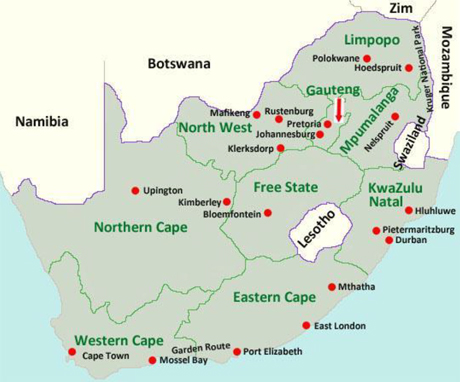| November 20, 2019 issue | |
Community Connection |
|
 |
|
| IDC pays tribute on the 159th Anniversary of Indian Arrival in South Africa |
|
 |
|
On the occasion of the 159th anniversary of arrival of the first Indentured Indians in South Africa, the Indian Diaspora Council (IDC) joins with its global affiliates and membership in paying honored tribute to those who made the first journey from India, arriving in Natal, South Africa on 16th November 1860. The advent of Indians in South Africa had far-reaching implications for, firstly, the Colony of Natal and eventually, the country as a whole. The descendants of Indian Indentured labourers are now over 1,400,000 in South Africa and have progressed in all segments of society. The first ships arrived in November 1860 having left Madras and Calcutta the previous month. The voyage, in a sailing ship or paddle-steamer in those days took an average of 45 days from Madras and 54 from Calcutta but a few decades later, when steamers were used, the journey was considerably shorter and 600 passengers could be transported in one trip in comparison with the 300 or 350 that the Truro, Belvidere, Lord George Bentinck and Spirit of Trade carried in 1860. We are reminded of their pioneering spirit, determination, persistence and endurance under extremely harsh conditions. While survival must have been the primary concern, they strived and persevered to maintain their sense of origin, traditions and culture. Their children, grandchildren and following generations will always take pride in this unique accomplishment, recognizing and appreciating the sacrifices and achievements made on their behalf. They have made invaluable contributions to the diverse culture and economic development of South Africa. Rita Abraham, South Africa Women’s Forte and Chairperson of the Indian Diaspora Council’s Women’s Forum states: “Today 16th November marks 159 years since Indians arrived in South Africa and sowed the seeds that marked the birth of a great community that has progressed and prospered. We owe them a debt of gratitude and honour them in our hearts and minds” IDC president Ashook Ramsaran states: “We pay homage and commemorate an historic event which took place 159 years ago and recognize the journeys, hardships, travails and perseverance of a people – while looking at today and tomorrow which can take lessons from that history of journeys not so long ago. While acknowledging that past, we can triumph by taking the same bold steps as those who came to South Africa and other lands with just a promise, with lots of hope and determination. Our ancestors came partially by choice, many forced, but resolved and persevered under very difficult and harrowing conditions. That shared experience, that saga of shared history, fostered an unusual kindred spirit of resolve, togetherness and kinship to triumph over obstacles and difficulties with dreams and aspirations of a destiny intertwined by history and fate”. IDC extends congratulations to the Government and people of South Africa on the commemoration of this 159th anniversary of that historic day. We also extend our continued best wishes to all the descendants of those early pioneers for peaceful and prosperous co-existence both in South Africa and other lands where they have subsequently settled. We continue to encourage and support active promotion of the rich and enduring Indian traditions which served their forefathers so well. We also wish to remind all the descendants of those early pioneers to recognize and reach out to others of Indian origin whose forebears also embarked on similar journeys. |
|
| WORLD INDIAN DIASPORA CONFERENCE 2020 | |
| Celebration of the Formal Abolition of Indian Indentureship (1920) | |
CALL FOR PAPERS The National Council of Indian Culture (Trinidad and Tobago) in collaboration with UNESCO Indentured Labour Route Project and the Department of History, UWI, St. Augustine invite you to submit papers for a conference in commemoration of the formal abolition of the Indian Indentureship system (1920), to be held in Trinidad, from May 29 to June 01, 2020. BACKGROUND When indentureship ended those Indian labourers who chose to stay in the countries where they were indentured, were then compelled to find ways to establish themselves in the society as non-contract labourers. To some extent they were forced to adopt these societies as their homes. They were left to find educational opportunities for themselves and to establish political alliances. They engaged in economic competition with other ethnic groups in the society and underwent a process of socio-cultural rejuvenation all in the interest of self-preservation. They made these countries their homes and they contributed in all aspects, to their development. This conference focuses on the economic, socio-cultural and political contribution and development in post-indentured societies. OBJECTIVES TOPICS POSTER PRESENTATIONS YOUTH PRESENTATIONS IMPORTANT DATES There is no registration fee for paper presenters for the conference. Presenters would be expected to fund their own travel and local accommodation to the conference. Arrangements are being made for discounted rates at hotels for presenters and delegates. A general cost is as follows: PARTNERING ORGANIZATIONS The National Council for Indian Culture (NCIC)] was established in 1964. It is the main Indian diasporic cultural organization in Trinidad. It has hosted several cultural missions and artistes from India and elsewhere. It organizes several annual projects to commemorate important dates on the Indian cultural calendar, with Divali Nagar being its flagship event. In 1960 The UWI’s second campus at St. Augustine was established out of a merger between the University College and the Imperial College of Tropical Agriculture (IATA) in the island of Trinidad. The two-campus College remained affiliated with the University of London until 1962 when it became The University of the West Indies. The UWI, St. Augustine campus has had a long tenure of research on diasporic migrations. Since 1975 the UWI has hosted several Indian Diaspora conferences culminating in 2015 with The Indian Diaspora: Identities, Trajectories and Transnationalities The UNESCO Indentured Labour Route Project focuses on indentured labourers and their descendants in over 40 countries and territories from the Indian Ocean Islands to the Caribbean, from 1820 to 1940. It aims to create an itinerary of heritage sites including museums, archaeological sites, historic buildings and other places around the world as well as a network of professionals in various disciplines related to Indentured Labour. |
|
 |
|
| < In The News | |